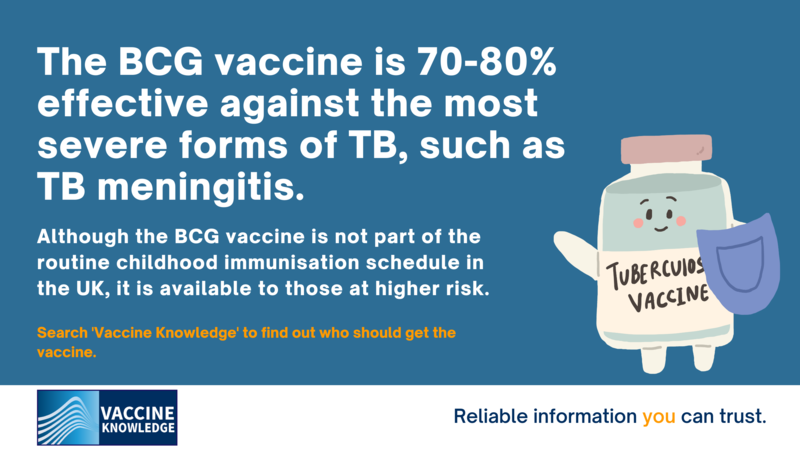Tuberculin skin test
Some people need to have the tuberculin skin test (also called the Mantoux test) before they are offered the BCG vaccine. This is to check whether they need a BCG or not. If they develop a hard red lump at the test site, this is a positive result. It means that their immune system already recognises TB, because of previous exposure to TB. In this case, a person should not be given the BCG vaccine because they already have some immunity to TB, and the vaccine may cause unpleasant side effects. If you have no reaction to the skin test, this is a negative result, and you can safely have the BCG vaccine.
History of the vaccine
The BCG vaccine was introduced into the UK schedule in 1953. At first it was offered to children of school leaving age (14 years old) because TB was most common in young adults at this time. Rates of TB in the UK were already falling, and they continued to fall after the vaccine was introduced.
In the 1960s it was realised that there were higher numbers of TB cases in people coming to the UK from countries with high rates of TB. At this point BCG vaccination was introduced for babies born in the UK to parents from countries with high rates of TB. Vaccination of all children aged 10-14 continued until 2005, when it was decided that TB rates in the general population had fallen to such a low level that universal BCG vaccination was no longer needed.
The UK programme now targets babies and children who are most at risk of exposure to TB, with the aim of preventing the more serious childhood forms of TB.
Before 2022, the BCG vaccine was given to eligible babies soon after birth, often whilst still in hospital. However, the addition of screening for Severe Combined Immunodeficiency (SCID) to the routine newborn screening test at five days of age, in six areas across England, resulted in a change. SCID screening has made it necessary to move the BCG vaccination to when the SCID screening outcome is available, which is approximately 14 to 17 days after birth. The vaccine has been moved for babies nationally, not just in the six areas where SCID screening has been introduced. This is to ensure consistency and safety for all babies across the country.
This is to ensure that babies with SCID are not given the live attenuated BCG vaccine, which could result in severe side-effects as all live vaccines are not advised (contraindicated) in babies with a SCID diagnosis.
The BCG vaccine is given just under the skin (intradermally), usually in the left upper arm. This is the recommended site, so that small scar left after vaccination can be easily found in the future as evidence of previous vaccination.
No other vaccine should be given in the same limb as the BCG for three months afterwards, because of the risk of lymphadenitis, where an enlarged lymph node that becomes infected.
BCG stands for ‘Bacillus Calmette-Guérin’, and is named after the two French scientists who developed the first TB vaccine – Albert Calmette and Camille Guérin.




